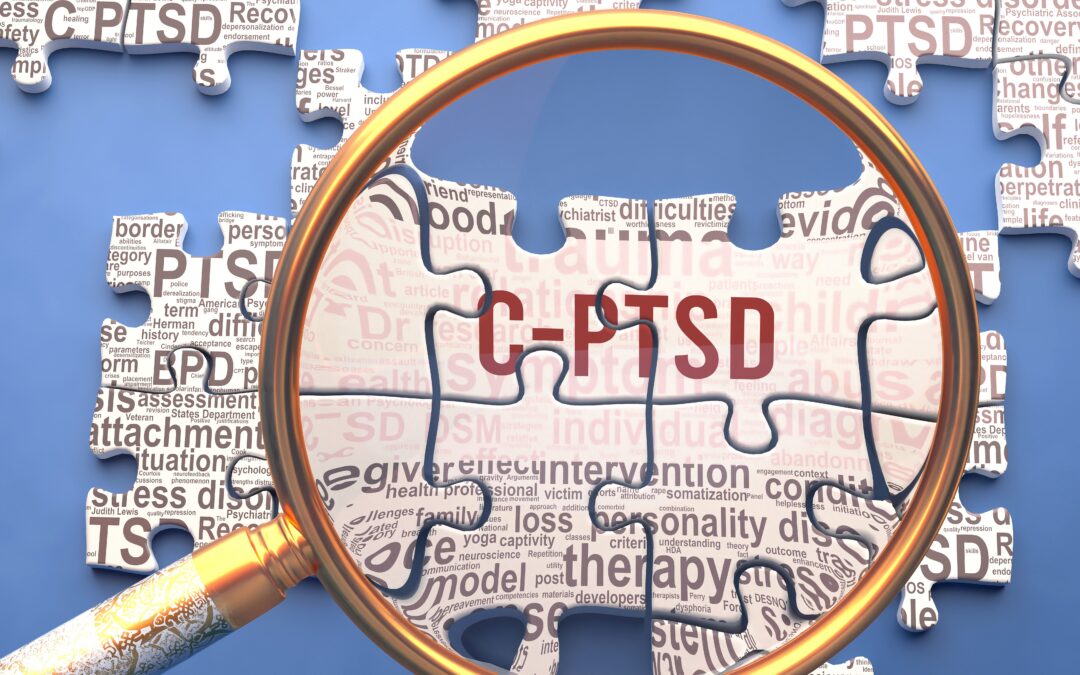Most people have heard of Posttraumatic Stress Disorder (PTSD) when learning about symptoms people experience from traumatic events such as being a first responder to a natural disaster, serving in a military operation overseas, or being the victim of a sexual assault. If an individual has a single traumatic event and has symptoms of PTSD, it gives mental health clinicians a clear pathway to diagnose and treat the symptoms of PTSD. What has made this pathway difficult is when an individual has an ongoing history of trauma and PTSD symptoms seem related to an ongoing history of trauma and not a single traumatic event, the clinician can not diagnose PTSD because the history of trauma isn’t considered a qualifying factor in the diagnosis of PTSD.
According to the DSM-5-TR (DSM = Diagnostic Statistical Manual – Book used in US to diagnosis mental health disorders), PTSD diagnosis needs to include a recent traumatic event for a PTSD diagnosis to be considered. This leaves mental health clinicians in a difficult state when there hasn’t been a recent traumatic event as defined by the DSM-5-TR, but the individual is showing symptoms of PTSD and has a long chronic history of trauma.
This is where Complex PTSD comes in. The World Health Organization does acknowledge c-PTSD in the latest version of its International Disease Classification (ICD-11), which was published in 2019 and came into effect in 2022. The international mental health community and trauma experts in the US refer to Complex PTSD quite frequently, but US mental health clinicians can not officially use this as a diagnosis yet.
How Is Complex PTSD Different Than PTSD?
Complex PTSD considers long-term repeated trauma which can happen in childhood. The psychological and developmental impacts of complex trauma early in life are often more severe than a single traumatic experience.
Besides the main symptoms of PTSD; c-PTSD can include:
- Loss of a system of meanings. This is how someone defines their own internal and external world. Someone can have confusion about their core beliefs, religious or spiritual values, or hope in people or the future of the world. They lose the knowledge of how they show up in the world.
- Negative self-view. When I work with clients with c-PTSD, many see themselves from a pessimistic viewpoint holding feelings of guilt, shame, unworthiness, being unlovable, etc. They don’t feel like can accomplishment anything (even though they usually have accomplished a lot).
- Difficulty with relationships. With clients with c-PTSD, I usually see this expressed in two different ways. The client usually avoids any close relationships whereas they will move away or distance themselves from anyone who tries to get close to them. The second one is the client has formed unhealthy relationships because that is what they experienced in the past. They will become attached or “feel safe” with someone who devalues, threatens, manipulates, or controls them.
- Struggling to control emotions. This can be seen as explosive anger, persistent sadness or anxiety, easily frustrated by everyday annoyances, impulsive behavior, and frequent mood swings.

Have you been diagnosed with PTSD but feel you may have c-PTSD instead? Are there aspects of c-PTSD that are resonating with you and you want to learn about further? Please call me or book a phone consult to learn more about c-PTSD and the different trauma-based therapies I offer.


